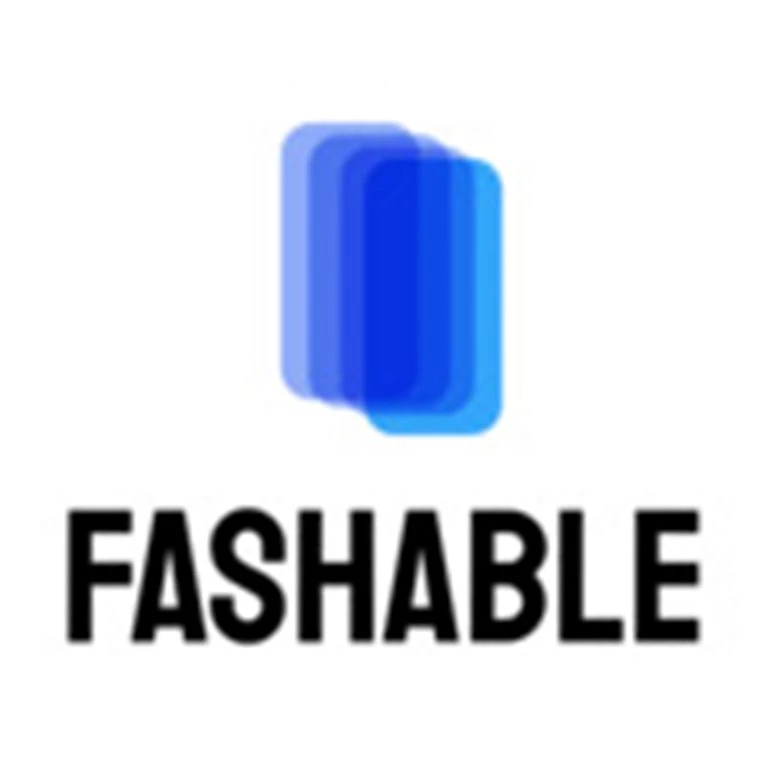The new year brings opportunity for thoughtful reflection about the past year, both personally and professionally. 2022 was a year of firsts for me-first time having clam chowder at Pike Place Market as a local, first time going shopping for heels with my daughter, and first time delivering an Azure keynote at Inspire as a Microsoft employee when pre-COVID-19, I was a Partner listening in the audience. And here is another first; the start of a new blog series where I plan to share more about noteworthy and inspiring data and AI innovations we are releasing across Microsoft. Given the National Retail Federation’s Big Show this week, I’ll also highlight how these innovations impact retail.
Let’s explore what’s new for Azure Data & AI this month:
Microsoft underscores resilient retail at NRF
A bellwether for economic and societal trends, the retail industry continues to be on the front line of adaptive innovation. And rather than trying to predict the future, retailers are working to achieve greater business agility necessary to thrive in it. This means that, like Majid Al Futtaim Retail, they automate tedious processes so employees can focus on higher-value tasks. Like Grupo Bimbo, they unify disparate data points in real time so that employees can access a central source of truth when and where they need it. And, like CCC Group, they stay laser-focused on delivering differentiated customer experiences to build loyal fans. Across each of these organizations, data is seen as an accelerant for growth, powering more personalized customer experiences, cost-efficient supply chains, and proactive responses to market trends.
Business agility requires people, processes, and technologies to work in harmony, and to align on how massive amounts of data are managed, analyzed, and actioned to respond to market demands. Increasingly, these efforts focus on driving sustainable growth that limits carbon emissions, for example by using machine learning to more accurately forecast demand to reduce excess inventory and waste.
We know cloud technologies like databases, containers, and AI can enable more accurate decisions, but it can be challenging to ensure these technologies speak to each other in the right way at the right time on a global scale. This is where Azure and the Microsoft Intelligent Data Platform-the description we use to refer to all of the Data & AI Azure products and services we offer shine. With managed databases like Cosmos DB, analytics services like Azure Synapse, and leading AI offerings, retailers can take advantage of the “by design” integration the Microsoft Intelligent Data Platform offers, which means they are able to invest more time in creating value rather than integrating and managing their data estate.
The Microsoft Intelligent Data Platform came to life through new immersive demo experiences this year at NRF and I’m going to briefly highlight what we showcased at the conference. Earlier this week at NRF, Microsoft’s Alysa Taylor and Shelley Bransten spoke on the topic of Resilient Retail and shared examples of organizations digitizing their businesses to do more with less. You can read more about their talks on our Industry blog.
Microsoft also met with customers at our NRF booth to discuss strategies for making sense of all their data. For example, these two demos highlight how tight integrations between data, analytics, and AI can help make resilient retail a reality.
Wide World Importers (WWI), a global supermarket chain, wants to maximize the value of their data estate. By using Azure Synapse pipelines with Cosmos DB, they get real time insights which are automatically shared with the right decision makers through tools like Azure Data Explorer and Power BI. They’re able to track their supply chain data in real time and use predictive AI to reduce costs. They’re also able to govern their data estate from a single application one pane of glass using Microsoft Purview.
Next, Wide World Importers taps into the power of Azure AI to build a more connected customer experience. They use Azure Form Recognizer to detect and redeem promotional offers. Azure Cognitive Search helps customers find product information more quickly by recognizing their search intent and helps WWI deliver more personalized recommendations. Pre-built AI capabilities, such as speech recognition and computer vision, also differentiate the shopping experience and provide a more accessible flow.
The general availability of Azure OpenAI Service
As Eric Boyd mentioned in his blog, we announced the general availability of Azure OpenAI Service as part of our ongoing partnership with OpenAI. Azure OpenAI Service provides a commercialization platform for businesses to leverage advanced AI models like GPT-3.5, Codex, and DALL*E to create innovative applications. Customers of all sizes across industries are using Azure OpenAI Service to do more with less, improve experiences for end users, and streamline operational efficiencies.
Microsoft Responsible AI Dashboard now available
The digitization of retail enables retailers to meet customer expectations with increasing precision, from providing personalized recommendations online to restocking inventory based on computer vision in physical stores. Shoppers expect the technology behind their retail experience to apply data and AI responsibly. In December, we began rolling out our new Responsible AI dashboard in Azure Machine Learning, which includes capabilities like fairness assessment, interpretability, error analysis, and causal inferencing. And today, we are excited to announce the general availability of the Microsoft Responsible AI dashboard. Retailers can leverage the Responsible AI dashboard to optimize the shopper’s experience as well as build trust and positive perception for their brands.
See how you can learn more about Responsible AI.
Full text search capabilities come to Azure Cosmos DB for Apache Cassandra
Azure Cosmos DB has seen tremendous momentum within the retail industry, given its ability to automatically and instantly scale when traffic is unpredictable without sacrificing performance or cost efficiency. Microsoft runs both the Windows store and Xbox Live on Azure Cosmos DB for this very purpose. This month, we’re announcing several performance enhancements to Azure Cosmos DB to make it easier and faster for developers to query data stores in Azure Cosmos DB. These include the ability to do full text searches in Azure Cosmos DB for Apache Cassandra through a native integration with Azure Cognitive Search, and support for GraphQL and REST through Data API builder.
For more technical detail about these and other updates to Azure Cosmos DB, visit our developer blog.
JSON support for Azure Cache for Redis Enterprise generally available
Support for JSON documents in Azure Cache for Redis Enterprise tiers, delivered via the RedisJSON module, has been made generally available as of November 2022.
This turns Azure Cache for Redis Enterprise into a high-performance NoSQL document store and drives efficiency for developers to modernize their applications. The new RedisJSON module update is well suited to retail customers looking to store, search, and index product catalogs and shopper data via a single atomic operation.
To learn more on Azure Cache for Redis Enterprise and the RedisJSON module please check out the blog.
Microsoft named a Leader in the 2022 Gartner Magic Quadrant for Insight Engines
In December, Microsoft was named a leader in the 2022 Gartner Magic Quadrant for Insight Engines, which evaluates the capabilities of various vendors in the market for providing enterprise-scale search for app development.
Organizations benefit, no matter the industry, but Cognitive Search is an exceptionally powerful tool for retailers, helping them to quickly find and analyze data related to customer behavior, sales, and inventory. It can also be used to personalize the shopping experience for individual customers based on their past interactions and preferences.
Learn more and download the report.
Customers innovating with Azure Data & AI
I’d like to close my inaugural “what’s new” blog post with my favorite way of making everything I’ve covered above actionable-by sharing examples of our customers succeeding. I share them as a way of helping spark the understanding-maybe even a little imagination-so that others can better envision how this amazing new Data & AI technology can be used in their own organizations.
I hope you enjoyed reading this month’s edition of what’s new in Azure Data & AI. We look forward to sharing more insights and inspiration in the months ahead.
 |
Grupo Bimbo transforms the data analysis of commercial areas with Microsoft Solutions
Mexico-The global baking company carries out hundreds of thousands of transactions globally and needed a way for collaborators to quickly access and act on insights to improve sales. By adopting Power BI and Azure Synapse, Grupo Bimbo was able to unify internal and external data, increase business agility, and democratize insights for increased productivity across the organization. Read the full Case Study. |
 |
How online marketplace CDON used AI to become a market leader
Sweden-CDON began as a small online retailer of CDs, DVDs, and games and quickly became the Nordic’s largest online marketplace. When CDON realized legacy technologies were holding it back, the company looked to Azure to accelerate its innovation and scale. Now their developers use Azure Cognitive Search, Azure DevOps, and other services to better understand the user experience on their website and increase personalization for better performance. Read the full CDON Case Study. |
 |
How AEON Group increased profits and maximized inventory with data and AI
Japan-Since opening its first store in December 2005, Maibasuketto, a member of the AEON Group’s supermarket business, has expanded its footprint at a pace of 100 stores every year. To ensure its growth was sustainable, the company embarked on an initiative to optimize store ordering and operations using Azure Cognitive Services, maximizing supply chain and inventory based on selling patterns throughout the day. |
 |
How Fashable reimagines fashion design with Azure Machine Learning and PyTorch
Portugal-Using Azure Machine Learning, Fashable created an AI application that generates original clothing designs to quickly get a pulse on consumer preferences. This helps fashion companies understand customer demand, get to market faster, and reduce clothing waste by only producing what they know will sell. Read the full Fashable Case Study. |
 |
WTW accelerates delivery time with Azure Migration and Analytics
United Kingdom-Operating in more than 140 countries with over 40,000 employees, Willis Towers Watson (WTW) has decades of experience working with the world’s largest loyalty programs. To efficiently govern the exponential growth in data for these programs and apply innovations in advanced analytics and AI, WTW moved its workload to Azure. Now their employees have more time to focus on uncovering insights for clients. Read the full WTW Case Study. |
